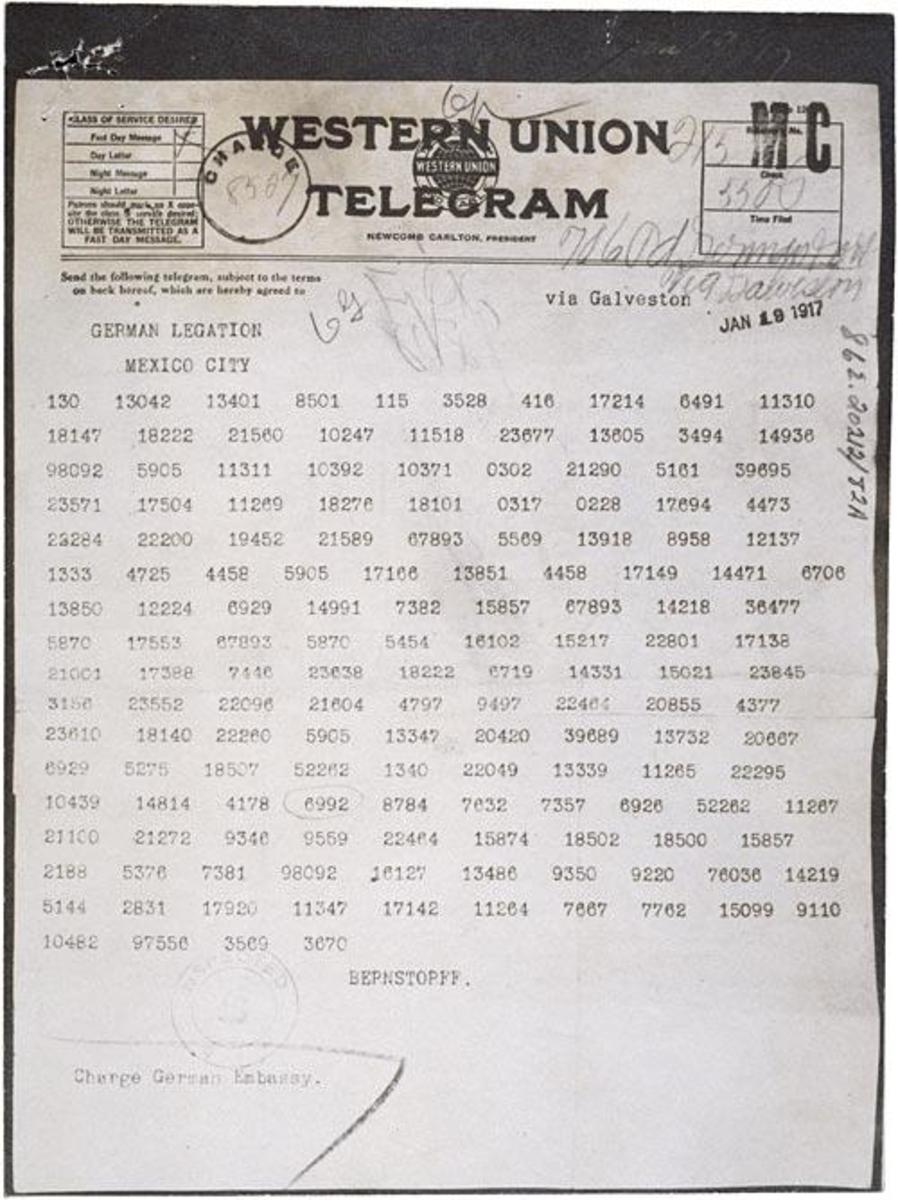How CIA Spied on the World for 50 Years?

This story could have been a scenario for a Hollywood movie, and its summary could be written as: “This film tells the story of the Swiss company Crypto AG, which has sold equipment to encrypt military and diplomatic contacts in most countries of the Western camp, for a period of about 50 years. But, secretly, this company was owned by the CIA, which, in turn, had seen all that had been heard. ” The movie would have been a resounding success, but the shocking thing that what could have been a movie was nothing but the truth.
The first use of cryptography for military purposes came when the Romans ruled the Earth more than two thousand years ago. Caesar needed then a way to send information to his forces in written form, and thus developed a simple but effective method, called the "alternative code", that changed the alphabet order by three for each of them (for example, instead of having the order of "A" 1 becoming 4, Thus, it becomes intended with the letter "Thaa", "A"). Today, a lengthy report prepared by the "Washington Post" newspaper, in cooperation with the German television "ZDF" and the Swiss radio and television station "SRF", reveals how the CIA established the Crypto AG company in 1970, within the framework of A "highly classified partnership" with the German intelligence service, "BND", of West Germany, through companies registered in countries that consider tax havens.
After World War II, Crypto AG sided on the throne of selling encryption equipment, and it sold equipment with “millions of dollars” to more than 120 countries. According to the Washington Post, the list of entities that dealt with the Swiss company includes Iran and the military councils In Latin America, India, Pakistan and the Vatican. This process was initially called "Tezoros", and then the name was changed to "Rubicon". Since 1970, the Central Intelligence Agency (CIA) and the National Security Agency (NSA) have controlled all aspects of Crypto AG operations, even making recruitment decisions, designing technologies, sabotaging algorithms, and directing sales targets. The company has always made at least two copies of its encryption equipment: secure models that will be sold to some friendly governments, and forged models that have been carefully engineered for the rest of the world. While foreign governments were impressed by the systems that seemed to be clearly superior to the old mechanical devices, the spies of the United States and West Germany enjoyed reading all diplomatic and military messages from those countries. Although the equipment was superior, there were significant obstacles: the Soviet Union and China, for example, were not customers of Crypto AG. According to the report, these two countries did not trust the company because of the depth of its communication with the Western camp countries. To solve this problem, at least in part, the United States of America eavesdrop on all countries that bought the devices and communicated with Moscow and Beijing, in an attempt to obtain as much information as possible.
Neither German nor American intelligence commented on the "Washington Post" report
In 1981, Saudi Arabia was the largest customer of Crypto AG, followed by Iran, Italy, Indonesia, Iraq, Libya, Jordan and South Korea. To protect its position in the market, Crypto AG and its secret owners engaged in subversive campaigns against competing companies, as well as soliciting government officials with financial bribes. On one occasion, Crypto AG sent an executive to Riyadh, with 10 hours of Rolex in his bags. This official arranged for a training program for Saudis in Switzerland, where "the favorite leisure time for the participants was visiting brothels" at the expense of Crypto AG. In 1986, after Libya bombed a club in West Berlin crowded with American forces, two American soldiers were killed, and US President Ronald Reagan subjected to the wiretapping operation, as he ordered his country's forces to launch strikes on Libya 10 days after the bombing. In a speech to the country, he said that the United States has evidence that Libya's collusion is "direct, accurate, and irrefutable." He added, "The evidence showed that the Libyan embassy in East Berlin received orders to carry out the attack a week before it occurred." Reagan's words made clear that Tripoli's communications with its East Berlin station had been intercepted and decoded. But Libya was not the only government to be alerted to the evidence presented by Reagan. Iran, which has learned that Libya is also using Crypto AG encoders, is becoming increasingly concerned about the safety of its equipment, but it did not change the equipment until six years after the accident.
German National Intelligence Department officials have often argued about their American counterparts' refusal to distinguish between adversaries and allies, and the two partners fought over countries that deserve safe versions of Crypto AG products, with US officials repeatedly insisting to send counterfeit equipment to almost anyone, Whether or not an ally. The Cold War ended, the Berlin Wall fell, and a unified Germany has different sensibilities and priorities. The Germans saw themselves as more vulnerable to the dangers of the coding process, and they were born with fear that revealing their involvement would lead to European anger and, consequently, to enormous political and economic repercussions. In 1993, Konrad Porsner, head of the German National Intelligence Department, told CIA Director James Woolsey that support from the highest authorities in the German government was dwindling, and that Germans might want to leave the Crypto AG partnership. On September 9, the head of the CIA station in Germany, Milton Bearden, reached an agreement with German National Intelligence Department officials to buy Germany shares for $ 17 million.
With their departure, the Germans soon separated from the intelligence information that the United States continued to collect. The newspaper quoted Burmester (an officer in the German National Intelligence) asking him if Germany still belongs to "this small number of countries that are not stipulated by the Americans." Snowden's documents presented what should be a worrisome answer, showing that the CIA not only considers Germany a target, but also monitors the mobile phone of German Chancellor Angela Merkel. In a 2004 CIA report seen by the investigators, it turns out that the process called "Tezoros" and then "Rubicon" was a "blow of the century" on the intelligence front. The material also obtained access to documents compiled by German intelligence agencies. According to the Washington Post, neither the CIA nor the German intelligence service wanted to make any comment about the investigation, without denying the information it contained. For his part, former coordinator of German intelligence, Brend Schmidbauer, told German television "ZDF", "Rubicon" was indeed an intelligence operation, noting that it contributed to "making the world safer." And the Swedish company, "Crypto International", which bought "Crypto AG", in turn, considered that the investigation "raises concerns", denying the existence of "any link with the CIA and the German intelligence service." On Tuesday, the Swiss authorities told France Press that they had begun a "survey" on the matter on January 15.
This content is accurate and true to the best of the author’s knowledge and is not meant to substitute for formal and individualized advice from a qualified professional.








